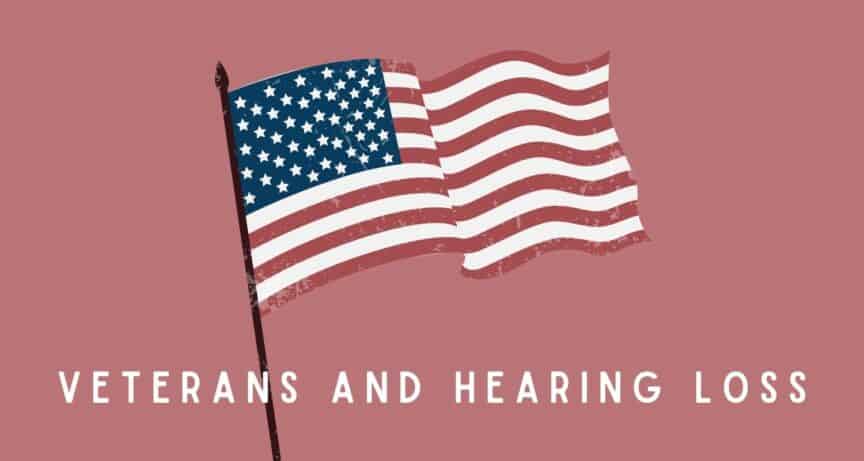Veterans are more likely to experience hearing health-related issues. Hearing loss and tinnitus are the most common conditions veterans navigate. Veterans are more likely to develop these hearing health-related conditions due to exposure to loud noise as well injury. So if you are a veteran, it is incredibly important to prioritize your hearing health. You can also access VA benefits that provide hearing healthcare support.
Hearing Loss, Tinnitus, & Veterans
Tinnitus is the experience of hearing a ringing or buzzing-like noise in one or both ears when no external sound is present. It can be experienced mildly too profoundly and can impact sleep, the ability to concentrate and participate in conversations. Tinnitus is one of the most common symptoms of hearing loss, a medical condition that impacts over 48 million people. Hearing loss can be caused by a range of factors including exposure to loud noise which damages critical components of the auditory system – the sensory system for hearing. Hearing loss reduces a person’s capacity to hear and process speech as well as sound. This strains communication – an essential way we move through daily life. Strained communication can have multifaceted effects including impacting relationships, social withdrawal, and increasing health risks.
Veterans disproportionately experience both hearing loss and tinnitus. This is due to environmental exposure to loud noise. Veterans are regularly surrounded by higher levels of sound which can include:
- Operating heavy machinery
- Engaging in or being in close proximity to gunfire, bombs, and other artillery
- Being in large aircraft, tanks, etc.
According to the U.S. Department of Veteran Affairs, in 2020:
- more than 1.3 million Veterans were receiving disability compensation for hearing loss.
- more than 2.3 million were receiving compensation for tinnitus.
These statistics highlight that over 3 million people receive benefits for hearing loss and tinnitus, the top two conditions veterans live with today.
VA Benefits for Hearing Loss
Accessing hearing healthcare is especially important and useful for veterans. Regular exposure to dangerous levels of noise means that veterans are at high risk for experiencing hearing health-related challenges. It is important to know that experiencing hearing loss means Veterans can file for and access disability benefits. The VA offers useful services and benefits that enable Veterans to readily access hearing healthcare.
This includes:
- Health benefits: this encompasses being able to access hearing healthcare services at a reduced cost. These services include hearing loss testing as well as costs and services related to hearing aids – the most common treatment for hearing loss.
- Disability compensation: this includes monthly payments you receive which can be used towards hearing healthcare services.
To access these benefits, you are required to enroll in the VA health benefits system. You can do this by applying online or in person at your local VA office.
Tips to Protect Hearing Health
In addition to accessing VA benefits and hearing healthcare services, there are several ways you can protect your hearing health. Practicing safety measures is especially important for veterans whose hearing health is more vulnerable. A few useful strategies include:
- Wear hearing protection: there are various forms of hearing protection including headphones, earbuds, and earmuffs. This offers a physical barrier for the eras which reduces the amount and impact of loud noise absorbed. There is hearing protection specifically designed for people in the military, military-grade earbuds or headphones offer optimal protection.
- Reduce loud noise exposure: in addition to wearing hearing protection, there are several other ways you can reduce your exposure to loud noise. This includes maintaining lower volume settings on electronic devices, avoiding loud settings, especially during peak hours, choosing quieter environments for social gatherings, etc.
- Take listening breaks: taking short listening breaks throughout the day gives the auditory system – the ears and brain – a break from constantly absorbing and processing sound. This provides time and space to rest and recuperate.
- Have hearing tested regularly: be sure to test your hearing regularly. Hearing tests involve a painless process that assesses the hearing capacity in each ear. This identifies any impairment and allows a hearing healthcare provider to effectively treat your hearing needs.
If you or your loved one is a veteran, prioritizing your hearing health is important. Implementing safety measures and being regularly evaluated by a hearing healthcare specialist are critical ways to prevent hearing loss. Contact us today to learn more.

